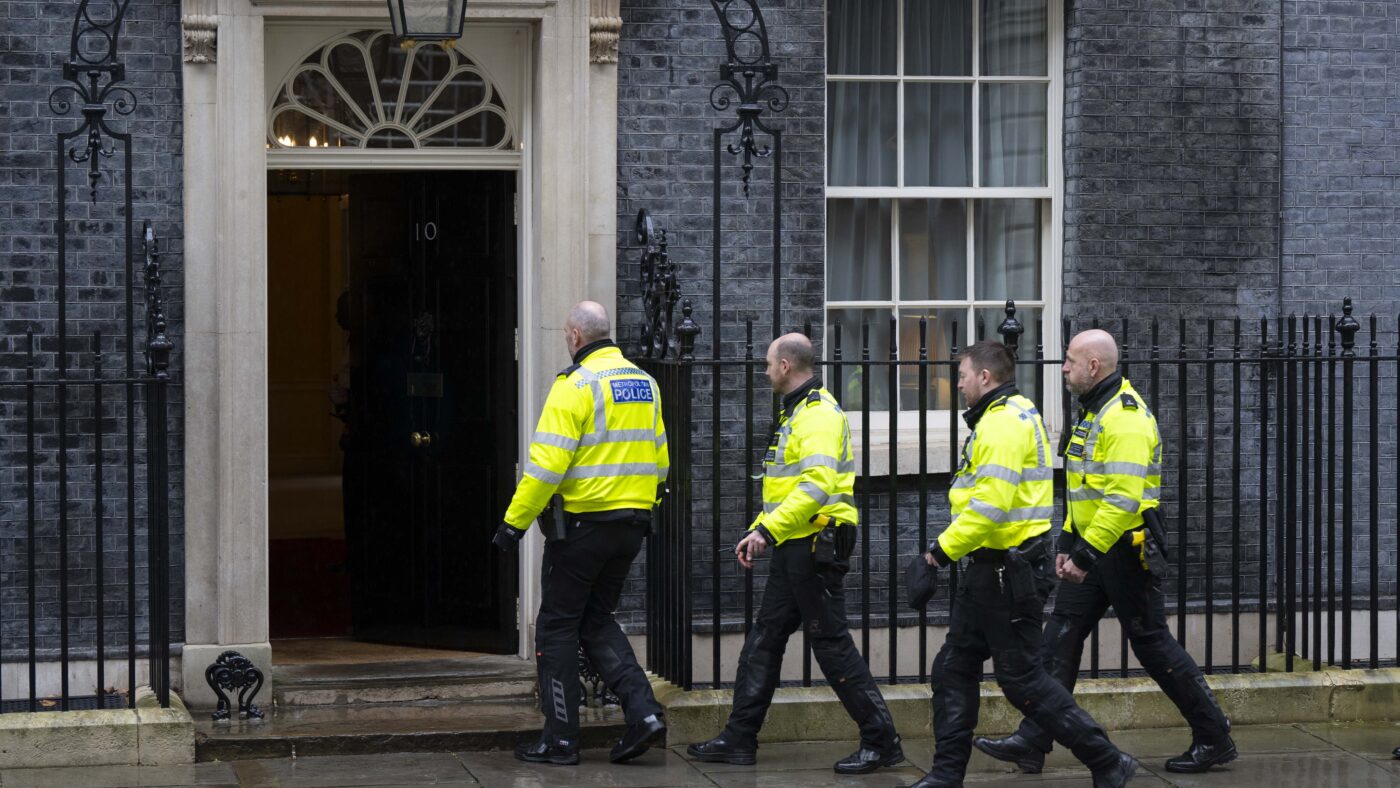Last week, I sat in Portcullis House, the modern addition to the Palace of Westminster opposite Big Ben housing the offices of many of our legislators. After formidable security I waited in a holding pen, keeping company with several police ballistic shields propped against a wall, not far from where a couple of heavily armed officers scanned visitors with practised indifference. We live in the age of extremity. Reminders are potent and unsettling.
Do Members of Parliament deserve special protection? What does this mean for the rest of us? The answer to the first question ought to be straightforward. Last week we were told the Speaker of the House of Commons subverted parliamentary process because of fears Labour MPs would be targeted with violence by protestors if their amendment on a ceasefire on the Gaza conflict did not take precedence in a vote.
The baroque explanations for this chicanery should not detain us, but the underlying menace must. Democratic representation, cowed by what the singer Chris Rea memorably called, ‘the perverted fear of violence’, is a blade to the fabric of liberal democracy in our country.
Inside Britain’s Parliament, the security and safety of MPs is coordinated between the Parliamentary Security Department for strategy and the Metropolitan Police for operations. Outside those high walls, guarded by armed officers, it is a different matter. Members of Parliament are expected to be visible and accessible to constituents. Their political futures rely on being able to connect with voters. But there is something even more important and precious here that transcends the base calculus of the ballot box. The democratic process and participation in it is threatened by the mob as never before. The US Capitol Hill insurrection of 2020 was a spectacular example of appalling mob violence whipped up by a demagogue. But such impunity is rarely spontaneous.
In this country, we’ve had two MPs murdered by Islamist and neo-fascist terrorists in the recent past. Another MP, Mike Freer, who was targeted by the same Islamist extremist is stepping down at the next election due to intimidation and death threats because of his support for Israel. He wears a stab vest to work. Last week, the member for Bournemouth East, Tobias Ellwood, had his home besieged by pro-Palestinian protestors with the police standing by impotently telling him and his children not to return to his house.
In the unsavoury clown show that is the Rochdale by-election, the former MP for the area, Simon Danczuk, standing for Reform, has reported online threats to murder him to the police. At least three female parliamentarians now have private security guards shadowing them as they go about their business.
What is the cumulative impact on the men and women we voted for, who are drowning in hate and worried about their families? If public representatives in charge of our laws act on fear rather than conscience then we are in very serious trouble.
No one reasonable wants to see those who aspire to politics, national or local, bullied or intimidated into silence or simply deterred from standing. The pool of talent is shallow enough as it is. Violent extremists across the ideological spectrum want nothing less, of course.
But it is not only MPs who are the victims of the febrile atmosphere that is poisoning public life. What about the schoolteacher in Batley who was forced into exile by a religious mob for showing a cartoon of the Prophet Mohammed in an RE class? Or the similar mob who forced the removal of a perfectly legitimate film from a cinema chain? Or the autistic child who was put through a grotesque show trial abetted by local police because he dropped a copy of the Quran in a school corridor?
With some notable exceptions, the body politic has remained mute on the emergence of a de facto blasphemy law, while intolerance and bullying have hollowed out our public institutions. Even the brutal slaying of Sir David Amess was bizarrely linked to issues of online speech, not the murderous Islamist death cult that motivated a man to stab him more than 20 times at his constituency surgery.
Today, the Home Secretary James Cleverly announced another £31m is to be spent on beefing up protection for 649 of his colleagues when they are away from the Commons gilded cage. It will be cash well spent if it means politicians are free to be advocates for their constituents without fear or favour. Meanwhile, away from politics, but never far enough, Jewish worshippers rely on volunteers to protect synagogues and faith schools from attack. Muslim women report being spat on and abused on public transport. The police in London, battered by scandal and exhausted by relentless weekly protests, seem both unable and unwilling to intervene and use existing laws to bear down on hate. The Home Secretary pulls the levers of power on everything from shoplifting to knife crime to illegal migration, and nothing much seems to happen.
The cynicism of ordinary people towards politics and politicians is at least as corrosive to democracy as the threat to its representative class. It is easy to put up more walls, have more panic buttons and assign more bodyguards. It is much harder to ask how and why we have surrendered civilised discourse to violent bigotry outside its perimeter. Harder yet to see a way to reverse it.
Click here to subscribe to our daily briefing – the best pieces from CapX and across the web.
CapX depends on the generosity of its readers. If you value what we do, please consider making a donation.


